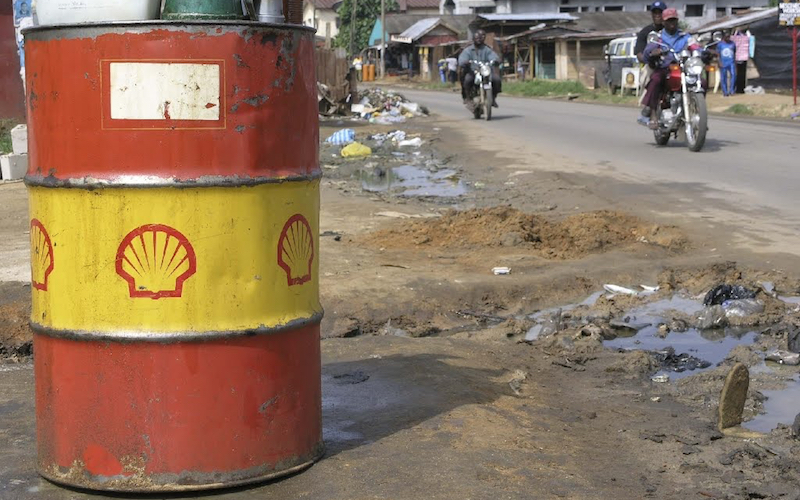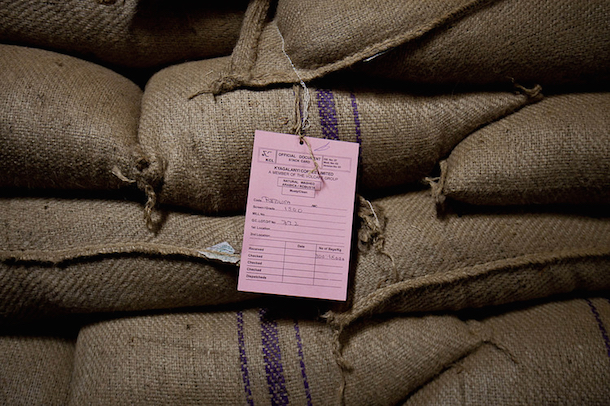
Africa Needs a People-Centered Economy
After a decade of unprecedented growth, African economies appear to be in trouble.
The International Monetary Fund (IMF) is now forecasting an expansion of only 3.75 percent for the region during this year, down from 5.0 percent during 2014, and the economy of the southern African state of Zambia is among the worst affected.
In the wake of falling copper prices, Glencore, the second-largest mining company in Africa, has announced it will halt its production in Zambia for 18 months. Since copper accounts for 70 percent of the country’s exports and its sale provides a significant portion of its tax revenues, the halting of copper production puts serious strains on Zambia’s economic stability.
Zambia’s currency, the kwacha, has suffered the highest percentage decline against the dollar of any currency this year. Zambia also faces its worst power crisis on record because of falling water levels at the Kariba North Bank hydropower station and delayed investment in much-need infrastructure.
In September, Moody’s downgraded Zambia’s credit rating by one level from B1 to B2 and cited power cuts, falling copper prices, and the constrained production that such falling prices bring about as significant downside risks for Zambia moving forward.
The Aftermath of the Commodity Boom
Over the past decade, China’s rise as an industrial power supported high levels of growth in Africa.
As one of largest recipients of Chinese investment, Zambia has been a chief participant in this larger phenomenon with China making substantial investments in the country’s infrastructure, particularly its copper and coal mining facilities. However, as Zambia flourished economically, it became more and more integrated into China’s supply chain. By 2012, exports to China constituted almost 45 percent of Zambian exports and over 10 percent of GDP.
While African leaders initially welcomed the surge in investment and interest, there are growing concerns that the continent’s economies have become uniquely overexposed to a Chinese slowdown.
As China’s growth has slowed, its excess production capacity is placing a drag on the commodities that have fueled high levels of growth in Zambia and other countries. As a symptom of the deteriorating relationship, bilateral trade between China and Africa has been dropping sharply since late 2014 and the prices of many of the commodities that China purchases from Africa have fallen by 40 – 60 percent within the last two years.
Africa’s overexposure is particularly problematic because China now appears to be rebalancing its economy away from manufacturing, construction, and exports – the sectors that most readily consume commodity exports from emerging markets – toward the services sector and consumption. Therefore, even if China resumes higher growth rates in the future, African countries, especially those that are currently dependent on commodity exports such as Zambia, Angola, and others, will be less able to rely upon it as an external engine that can fuel their domestic growth.
Three Recommendations for the Future
Following the recent commodity slump, three of the most important of the measures that African states and their international partners should support are: intraregional trade, investment in infrastructure, and African entrepreneurship.
Intraregional Trade
Increasing and improving intraregional trade holds great promise for supporting high levels of growth in Africa. In the wake of the Chinese slowdown, African economies are already looking to their neighbors to fill the gap and lay the foundation for more sustainable, long-term growth.
Zambia has already announced plans to increase its trading relationship with surrounding countries such as the Democratic Republic of the Congo (DRC), which itself is suffering greatly from the decline in Chinese demand. According to the Zambian Development Agency, the country plans to increase exports to the DRC from the current level of 30 to 40 percent by next year.

More broadly, African leaders are currently in the final steps of negotiating the Tripartite Free Trade Agreement (TFTA), the largest free-trade agreement in the continent’s history. However, in order to avoid the shortcomings of past agreements, policymakers and civil society must recognize the persistent challenges facing free trade in Africa, such as non-tariff barriers, and work to forge innovative, comprehensive solutions.
Investment in Infrastructure
The lack of developed networks of interconnected infrastructure has been a continuing stumbling block for Africa. Recently, insufficient power infrastructure has led to blackouts and power shortages across Zambia and numerous other African countries, and is compounding their already difficult economic situation. Until there is improvement in infrastructure, African countries will also find it difficult to develop more robust manufacturing and service sectors, which serve both as a buffer to absorb the force of future economic shocks and a pathway to economic diversification.
Countries that have undertaken successful campaigns to improve their infrastructure are already feeling the benefits. During the second half of 2014, successful investments in power-generation infrastructure in Kenya led to a 20 percent increase in overall capacity and a 25 percent decline of electricity cost, and Ethiopia and Guinea are poised to capitalize on similar plans.
As other countries seek to emulate Kenya’s example, they must be sure to address the corruption and illicit financial flows that have undermined past attempts.
African Entrepreneurship
Entrepreneurship is a core element of growth and development in markets around the world. In particular, African entrepreneurs are playing a vital role in disrupting the status quo and taking advantage of the continent’s untapped potential.
However, as African entrepreneurs have looked outside the continent for investment from partners such as China and the United States, they have confronted numerous challenges in securing capital and investor confidence.
As Dante Disparte, the founder and CEO of Risk Cooperative, a specialized strategy, risk and capital management firm located in Washington, D.C, has stated, “The formula of historical financials, market sizing, business plans and perfect 5-year exit strategies means that even the most seasoned early stage investors approach African opportunities with trepidation and the wrong yard stick.” Moreover, the low levels of intracontinental market integration and infrastructure investment drive up risk to the point at which entrepreneurs either cannot secure capital or create firms that foreign investors want to fund, not the disruptive businesses that are most likely to lead to innovation and growth.
In order to catalyze the rise of African entrepreneurship, African entrepreneur Tony Elumelu has launched the Tony Elumelu Foundation Entrepreneurship Program (TEEP) and seeded the initiative with $100 million. The program’s goals are to support African entrepreneurs by identifying 10,000 startups that have the potential to create 1 million new jobs and $10 billion in revenues over the next 10 years.
African governments and their international partners should strive to support entrepreneurship both by providing direct opportunities for entrepreneurs, as Elumelu has done, and by removing the many impediments that current exist.
A People-Centered Economy
While the region is enduring a downturn brought about by China’s economic transformations, Africa still holds tremendous promise for the future. If the countries that are most affected by the current shocks take the proper measures in response, the IMF predicts that the region could once again return to 5 percent annual growth in three years time.
However, the only way that Africa can return to the levels of growth that it enjoyed during the commodity boom is by undertaking a paradigm shift in the way that we think about the continent’s markets and development. The declining prices of copper, oil, and other commodities highlight the necessity of reorienting away from a resource-centered economy toward a people-centered economy.
A people-centered economy functions best when people are able to come together and take advantage of their diverse talents and abilities. Within Africa, efforts to strengthen intraregional trade, invest in infrastructure, and foster entrepreneurship are necessary to create the dynamic, wide-reaching networks that allow people-centered economies to thrive.
From Lusaka to Washington, stakeholders and thought leaders should recognize that this change in mindset is key for unleashing Africa’s true potential on the world stage.

